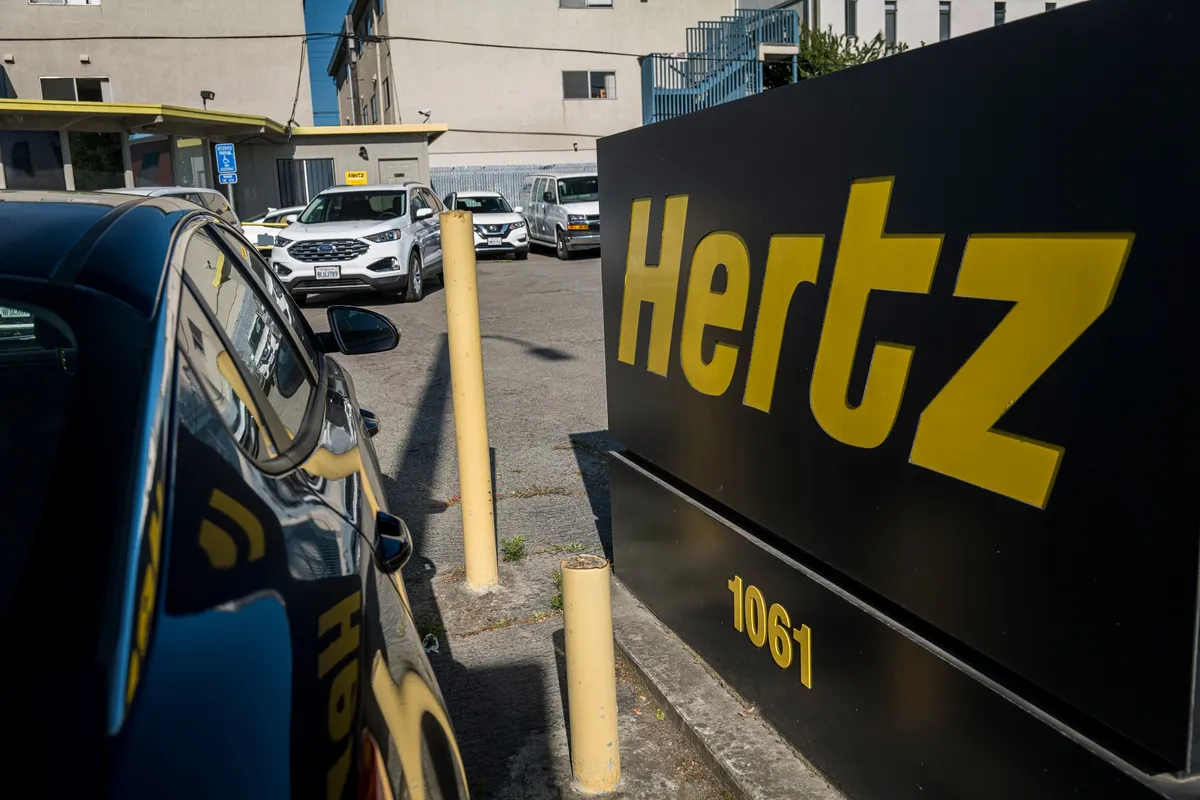Hertz Global shares fell sharply on Tuesday after the rental car company posted weaker-than-expected first-quarter earnings and announced a $250 million stock offering aimed at reducing its debt burden. The stock dropped over 20% during early trading and closed down nearly 17%, extending losses that began after the earnings report was released Monday evening.
Hertz reported an adjusted loss per share of $1.12, deeper than analysts’ forecasted loss of 97 cents. Automotive revenue came in at $1.81 billion, missing expectations of $2 billion. The company attributed much of the revenue decline—13% year-over-year—to a reduced rental fleet, which is down 8% from the same period in 2024.
During the earnings call, executives outlined a $250 million at-the-market (ATM) equity offering as part of a broader deleveraging strategy. Hertz CFO Scott Haralson noted that the offering would give the company flexibility to manage upcoming debt maturities. Details on the total proceeds and share count will be determined during the process.
Investors responded negatively not just to the earnings miss, but also to Hertz’s decision to shrink its rental car inventory amid weakening consumer demand and the effect of tariffs on vehicle prices. CEO Gil West said that the company is prioritizing cost-cutting and fleet efficiency under its “Back-to-Basics Roadmap” in a bid to enhance profitability. He emphasized that while revenue transformation is ongoing, immediate focus is being placed on managing expenses and optimizing fleet usage to create a supply-demand imbalance that could lift margins.
Despite the challenges, the company reported a $92 million improvement in direct operating expenses compared to the previous year. Management reaffirmed its goal of reducing depreciation per vehicle to under $300 by the second quarter and achieving positive adjusted EBITDA by the third quarter of 2025. Additionally, Hertz highlighted strong retail vehicle sales during the quarter, benefiting from elevated residual values in the used car market.
Still, analysts remain cautious. Barclays’ Dan Levy noted that while Hertz is making progress on cost controls and fleet strategy, demand remains a critical risk factor going forward. Prior to the earnings call, Hertz stock had risen 90% year-to-date, boosted by Pershing Square Capital Management’s nearly 20% stake in the company.
READ MORE:
